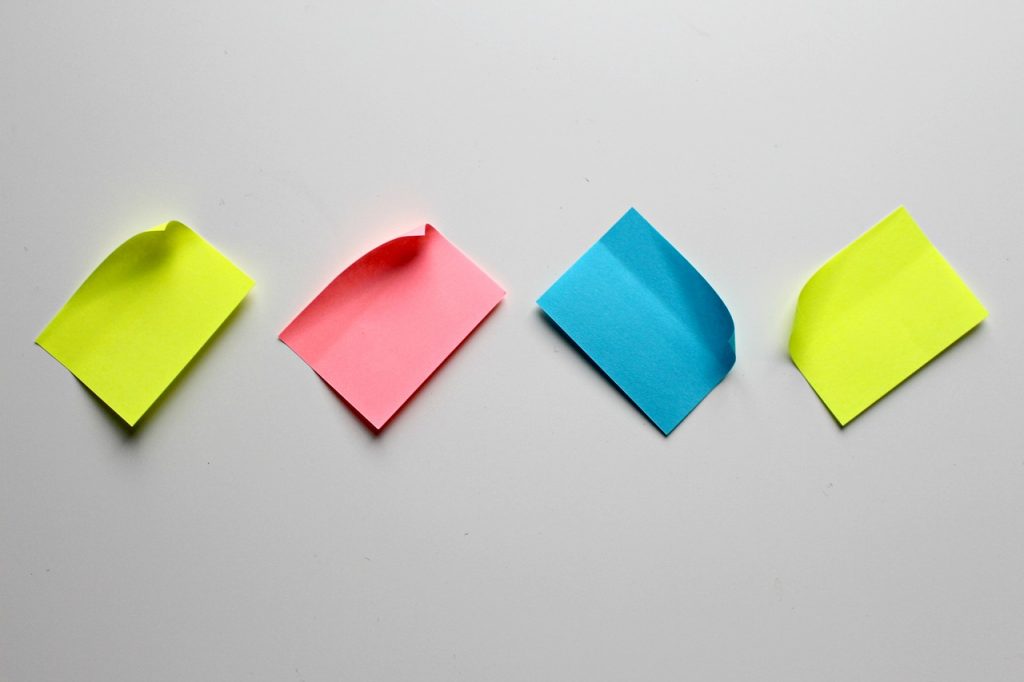Many first-year college students get their first task on writing a reflection paper. When they see others’ samples or ask tutors for help, they have more chances to write perfect academic work at once. Still, there are many problems students face during the writing process. For example, they lack reflection paper ideas or don’t know how to build a logical structure of collected material. In our article, we want to share some guidelines on what elements you need to include and how to keep your personal style in the reflection paper and when to look for college essays for sale if you face problems with writing.
Table of contents
- What is a reflection paper?
- Reflective paper and letter differences
- Reflection paper standard structure
- How to write a reflection paper
- How to work with reflection papers format
- Reflection paper topic suggestions
- Reflective essay writing video guide
- Reflection paper example
- The role of a reflection paper in education
- Let our writers help you to write a reflective essay
What is a reflection paper?
Before asking yourself how to deal with it, you need to define what a reflection paper is. The academic definition says that a reflection paper is a type of writing where students can depict their own position towards a specific question. Actually, there are three types of reflection papers, and it spreads by purpose:
- educational
- professional
- personal
Depending on which type of paper you are assigned to do, developing an idea will vary. If the types of papers confuse you and you need assistance, don’t hesitate to hire one of our talented writers and ask them: “Please help me do my paper for cheap.”
For example, if you write an educational or professional reflection paper, you probably will concentrate on reflective reading. In this type, you can write about a book you’ve read, a course you attended, or focus on a career perspective. Usually, professional reflections are written regarding psychology, philosophy, or educational science topics. If you are lucky to reflect on a particular topic, you can reveal your thoughts or feelings on the project.
One of the most popular approaches to a reflective inquiry is experimental reflection. In this type of reflection paper, you can accentuate ideas, experiences, and professional concepts. This is less self-reflection but a more career-oriented type of paper. Here you can present a list of critical questions and answer them based on your own viewpoint.
Understanding what opportunity this type of writing offers, you can easily get how to start a reflection paper on your topic. Consider your personal observations and explore your own ideas about a topic. This task helps students to shape experiences and their thinking into writings. It is also beneficial for tutors to find out your acceptance of new ideas.
For example, if you are asked to write about reflections on reading, teachers want to see the way you are expressing your personal opinion. They do this to encourage you to explore your own ideas about a text rather than summarize others’ viewpoints. Reflective writing increases your analytical skills because it demands easy thinking expression.
Additionally, reflective analysis shows how and why you think that way. And more significantly, when your assumptions and preconceived ideas shape your thoughts, you learn to appreciate others’ viewpoints. Notice how their beliefs and preconceived notions may differ from your thoughts, and realize how well your ideas are supported or contradicted with what you’ve written.
Reflective paper and letter differences
A reflection paper differs from other paper types by its unique approach. Here a student is the author of the story. For instance, in a book or music review essay, you can rely only on the composition’s content. Meanwhile, in reflection paper examples, you can see how students tell their opinions more independently. Our writers know what to do to keep the perfect balance between following the strict requirements and adding some creative approach. Just leave a “do my essay” request and see for yourself.
In this specific kind of project, you need to highlight the main points from publication (book, article, document, essay, post), activity, or situation. In the reflection paper, you can use such supportive materials as illustrations, diagrams, graphs, and charts. So, how to write a reflection paper considering its characteristics? First of all, you need to answer the following questions:
- How did the material you reflect on impress you?
- How did it influence your mind?
- What does it mean specifically to you?
- Is the material interesting for readers? Does it easily hook the audience’s attention?
- Has the material changed your viewpoint concerning some questions? If so, explain how.
- Has the material raised any questions concerning a related discipline?
- Where in the article have any critical issues been left unaddressed?
- Does the material relate to anything from your past reads?
- Does the material agree with any of your recent reading experiences?
A clear understanding of these elements will help you to make your reflection paper valued among other scholarly researches. Otherwise, when you want to learn how to write a reflection letter, you need to get these basic principles:
- A reflection letter always has an addressee, whether it is your friend or selection committee.
- The reflective letter’s tone should be combined with academic and informal speech, where an author is supposed to appeal to an addressee for a response.
- It can be written about an educational program’s past experience, current studying course, or internship.
- Students share information in reflection letters about skills they gained during the educational process or practicing on probation at work.
- While in a reflection paper, you focus on the material that impacted you most, in a letter, the center of your story is you and your experience. The author needs to show the reader personally how something or somebody affects their everyday lifestyle.
- At the end of the reflective letter, you can share your plans and goals for the future.
These elements make reflection letters slightly different from a paper or essay. You will get a better understanding of writing with reflection paper examples and specific models of reflection letters in different sections. You can look through numerous free paper samples here. Remember that you can leave a “do my dissertation” request and let our team help you craft a unique paper.
Reflection paper standard structure
“Do I use different structures when I do my term paper and work on my reflection paper?” – you might be wondering. Let’s focus on the latter one. As with any academic writing, a reflection paper has its own plan, which you are recommended to follow. Completing collected information under a specific section is essential to be correctly understood by a scientific audience. All papers consist of an introduction, body paragraphs, and conclusion, and in the following examples, you will see how to apply this structure to the reflection paper.
Introduction
In this section, you need to have a direct approach to how to start a reflection paper. As every scholarly writing has a thesis statement as a starting point, include it in your reflective essay as well (use our thesis statement generator to get some fresh ideas). Define what you are stating and show it in the first sentences. Tell the reader what you will reflect on: course, program, scholarship, volunteering, or other experience. Also, don’t forget to present your expectations before you’ve been acquainted with experience.
Body paragraphs
This is the main section of the reflection paper outline. Students show their step-by-step report on why and how the event or material affects the perception of the subject in the body paragraphs. With a logical depiction of your own opinion, you reveal the meaning of the material or experience. “Does the same logic apply when I do my coursework or look for someone to help me do my personal statement?” – you might want to know. The answer is yes, you always use this approach when working on your writing assignments.
In the first paragraph, you tell how you start your experience and what lead you to it. In the second, you show examples of which life aspects it concerns and how it changes your mind. In the third paragraph of the reflective essay, the author can analyze connections between opinions, observations, and experience.
Conclusion
In summary, you can answer yourself what the main reflection paper question means to you and what you’ve learned researching it. In the final section, you conclude the thesis statement and general information depicted in the main section. The conclusion makes a final impression on the reading audience, so don’t negotiate while asking yourself how to write a reflective essay. If you need help restating your main idea and making a strong impression on the readers, leave a “Help me do my college essay” request, and our team will assist you in no time.
This is the typical reflection paper sample structure you can follow, so your project looks organized and compelling. Before writing the first draft, work on a reflective paper outline, where you mark each chapter with important points and tips. Create a title for each paragraph so as to not lose anything important. Stick to the structure while arranging thoughts and implement it in your writing.
How to write a reflection paper
1. Define your topic
After you come up with the main theme, write a short template about what you have gained, passing through experience with that topic. Be honest with readers about how you feel about your topic. They will better understand your reflection when you can relate your opinion to the material or situation you reflect on. The way you form your perspective will help you during the writing process.
2. Brainstorm new concepts related to your main theme
When you are looking for inspiration, the best answer on how to start a reflection paper is brainstorming. Note down anything that has impacted you most in the material and proceed to work around it. Explain your feelings, emotions, and experience concerning the subject. As you can see, this approach differs from the one our writers use when they receive a “do my research paper” request from you. What do I write when I need to do my apa paper?” – you might ask us. We have the answers. Just browse our website or place an order to get a unique paper. For example:
- “The first time I tried skateboarding, I understood how easily it could be a metaphor to life. We need to learn to go through obstacles in various manners to not fall.”
- “Skateboarding is one of the most dangerous yet joyful kinds of extreme sports. Trying it myself, I liked to gain new skills not only for my body but for my mental well-being.”
- “Many people think that skateboarding is just for kids, but in my opinion, it is a beneficial training method for adults as well. When I tried to skate for the first time, I felt how my brain connects with my body to operate all maneuvers. It is just like dancing on the road.”
It doesn’t matter which reflection paper topics you consider for your project; the main thing is to dedicate some time to brainstorming one reliable idea.
3. Examine how material or experience has affected your topic interpretation
After brainstorming, you can choose what impacts you most with the book, article, program, course, or other experiences. Present convincing insights that only you discerned inside the situation. Consider further subjects that are the most common when we speak about how to start a reflection paper:
– Interview. Here, the author needs to give emphasis to the person in which they interview. Present the interview theme, content, and touch the main points, mentioning how the respondent answered the questions.
– Program. When you’ve attended some lectures or visited classes in your relative professional disciplines, depict how it is beneficial in the broader career perspective. Explain reasons for taking this program and share your thoughts on whether the outcome was the same as you expected.
– Book or composition. Usually, the author of the book includes many autobiographical facts in the plot. After reading a book, investigate the author’s biography, and write your reflection paper based on a comparison of plot vs. real-life consequences. Focus on your perception of characters, cross-cutting action, and the responsibility they need to manage. It is not necessary to reveal the book’s finale for the reader but share your ideas that came to your mind when you were inspired (or disappointed) by the book.
– Project. It can be a project you took part in or another project you read or observe. Dedicate one page of your reflection paper to how the project can benefit scholarly works. Keep standard structure for project reflection, and additionally, work on the pros and cons of the current research. Identify which changes you would like to see if the author could improve this work.
In general, we recommend you keep your reflection paper short and concise. There is no need to broaden your topic and develop excessive ideas if you lack an impression of the research material. Keep your voice simple but convincing because readers don’t want to be overwhelmed with complex definitions. Cite all used sources to protect your reflective project from plagiarism. For this purpose, following recommendations on the format will be useful for you. If formatting takes a lot of time, ask our writers: “Please help me do my assignment and format it properly.” Here, you can get deductive essay writing help from experienced specialists.
How to work with reflection papers format
Many academic essays have a strict demand on formatting, and a reflection paper is no exception. The reflection paper format should meet guidelines depending on which style you are assigned (APA, MLA, Harvard, Chicago, etc.). In the following lists, we want to share the two most common citing style requirements with you – APA and MLA.
If you have the assignment to format a reflection paper in APA style:
The reflection paper format is identical to any other APA essay. Keep double spaced indents, write the title in a header in all caps at the top left of each page, and add the page number at the top right. Start the title page with the refection paper title, your name, and any other information on demand (like your class or educational institute). Also, include a short abstract or your reflection summary on the first page. If you work with in-text citations or a references list, in the end, use the APA guidelines to format them in the right way.
If you have the assignment to format a reflection paper in MLA style:
Follow these MLA academic formatting basics to make your reflection paper polished:
- Use white 8 ½ x 11-inch paper if you print your work.
- Make 1-inch margins on the top, bottom, and sides.
- Indent the first word in every paragraph one-half inch.
- Block quotations should be indented in one inch from the left margin.
- Such fonts as Times New Roman or Arial are applicable for your reflection paper because they are easy to read. Remember that italics should look different from the regular typeface.
- Set 12 point font size.
- The entire paper should be double spaced, even on the references list page.
- Remember to leave one space after periods and other punctuation marks.
With the citation style list overview, you can be more confident working with any reflection paper format. Even if you have challenges with long references lists or in-text citations, our trustworthy English writers will assist you.
Reflection paper topic suggestions
- The way I build communication with various groups of people.
- The most dangerous hobby I’ve ever tried.
- Why do I fight my fears?
- A book that I am always ready to return to.
- The movie that impressed me.
- The last time I shared an essential secret with my family members.
- First experience of driving a car.
- My feeling on the first date.
- The importance of revealing feelings to closest ones. My positive experiences.
- First-time parents let you feel independence.
- Hunting and my opinion towards it.
- Natural disasters and my experience as an observer (earthquakes, floods, storms).
- My favorite store.
- My first workplace.
- My first time in an amusement park.
Reflective essay writing video guide
Reflection paper example
Has Social Media Helped or Harmed Our Society?
Social media has been around for some time now. Even if you need information, a cooking recipe, a movie review, or some inspiration for your English essay, you can find it all on the internet.
People have different opinions: some think that social media is very harmful and has been from the beginning, while others think that it is a fast way for us to communicate or to get somewhere. In terms of whether social media is more harmful or helpful, I would say that it is both. It is important then to determine the pros and cons of social media.
Firstly, the pros. Instead of the traditional letter that would reach your lover days later, a message on social media would reach your loved one or your friend in seconds. The internet is an easier way for everyone to talk to their friends and family, and it helps you find a way if you are lost on the road. You can even shop everything online without even having to get out of your bed and just to be delivered to your door. Another one is that it is easier to gain information for school. Linkedin, for example, will help you with work or find a workplace. As it can be seen in the Forbes article, “It’s Not All Bad: The Social Good of Social Media” by AJ Agrawal, it has increased teen awareness. The article says that “using social media allows teens to follow organizations and causes that they believe in. It makes them feel like they are a part of something, even when they feel like an outcast in society,” which is true, because teens need to be informed as much as adults do nowadays, because there are many dangers that teens may not be aware of. Our society uses social media daily, perhaps sometimes too much.
Firstly, we spend way too much time on social media. Sometimes we forget to do our tasks because we spend too much time on Tiktok. Social media can even harm our mental health with some opinions from rude people or even news about things that can harm us. Most of us say that social media has too much information about us and that it has a purpose, but why does it have so much information about us? Because we give the information. Jessica Brown wrote in a BBC article, “in the survey of 1,800 people, women reported being more stressed than men. Twitter was found to be a ‘significant contributor’ because it increased their awareness of other people’s stress” (“Is Social Media Bad for You?”). An example is something that happened to me. During the pandemic, social media made me very stressful because of all the fake news and all of the information that was coming, plus the fact that I was locked in, not seeing my friends or going to school. In a way, it made me feel stressful through all the news, but in another way, it helped me through the fact that I was able to chat with my friends on social media. Another con of social media is that teenagers, especially young girls, can be tricked by adults who pretend to be teenagers just to talk to young girls and meet with them. This is why teenagers need to be informed about the dangers of social media both at school and at home.
In conclusion, in my opinion, social media can have both pros and cons, but if it is used with limitations and for a good purpose, it will do no harm to you or to others.
Works Cited
Agrawal, AJ. “It’s Not All Bad: The Social Good of Social Media.” Forbes, Forbes Media, https://www.forbes.com/sites/ajagrawal/2016/03/18/its-not-all-bad-the-social-good-of-social-media/?sh=644a7c90756f.
Brown, Jessica. “Is Social Media Bad for You? The Evidence and the Unknowns.” BBC, BBC, https://www.bbc.com/future/article/20180104-is-social-media-bad-for-you-the-evidence-and-the-unknowns.
The role of a reflection paper in education
When you are assigned to write a reflection paper, consider this task seriously. This type of work is essential for students to learn thought expression. Depending on the topic, the student’s reflective essay can differ, but it is still beneficial to improve various skills. Reflection paper assignments will also help teachers to reveal strengths and weaknesses of analytical and writing skills. Therefore, when you try to find out how to write a reflection paper efficiently, rely on your topic and get in-depth research. If you want to present key points of your reflection paper in class, leave a “help me do my PowerPoint presentation” request here, and our team will assist you.
Let our writers help you to write a reflective essay
Writing a reflection paper is not an easy occupation. Some students can’t think of a valuable story to reflect on, while others don’t feel their experience is worthwhile. In our opinion, the main issue is the lack of knowledge on how to implement your experience in writing. If you lack reflection paper ideas, you can always visit EssayShark for support. Our experts also know how to start a career essay and how to write an article of 500 words without stress. With a personal essay writer assistance, you will learn how to sound more confident in writing and better understand what elements to include in the reflection paper. Read further reflection paper examples and use them as a template for another writing assignment on this task.
Photo by pitoutepitoute from Pixabay









